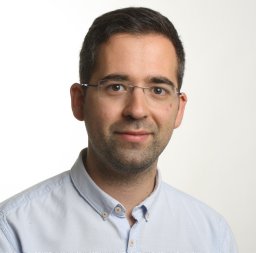João S. Resende
 |
Departamento de Ciência de Computadores (FC6 - DCC) Contact: jresende (at) fc_up_pt |
Short Bio
In 2023, João Resende returned to the University of Porto as an Assistant Professor in the Department of Computer Science (DCC) at the Faculty of Science (FCUP), teaching courses at both the Faculty of Science and the Faculty of Engineering (FEUP). Previously, he held the position of Assistant Professor at the NOVA School of Science and Technology in Lisbon (FCT/UNL).
In 2021, he successfully earned his PhD in Computer Science, focusing on “Security Enhancing Technologies for Cloud-of-Clouds,” a research project conducted collaboratively across the Universities of Minho, Aveiro, and Porto.
João Resende has also worked as a cybersecurity researcher at the Center of Competence in Cyber Security and Privacy (C3P), where he played a key role in managing projects such as CyberSec4Europe. This initiative was one of four pilot projects aimed at establishing a Network of Cybersecurity Competence, with a particular focus on creating a new European Cybersecurity Competence Centre.
He brings extensive expertise in computer science and cybersecurity, making significant contributions to both academic research and innovative cybersecurity initiatives. Currently, he supervises four PhD students in collaboration with peers from other universities: João Gama (FEP), Henrique Domingos (NOVA), Osman Yağan (CMU).
Linkedin: https://www.linkedin.com/in/jsresende
Principal investigator (PI) Projects
- Hardening Operation Security of CSIRT based on predictive maintenance - https://sciproj.ptcris.pt/en/176773PRJ
Publications Selected
- [PDF] Looking at the Clouds: Leveraging Pub/Sub Cloud Services for Censorship-Resistant Rendezvous Channels. Afonso Vilalonga, João S. Resende and Henrique Domingos. PETS2024 - FOCI
- [PDF] Hardware Security for Internet of Things Identity Assurance. Andre Cirne, Patricia Sousa (INSIGHTSEC), João S. Resende, Luis Antunes. IEEE Communications Surveys & Tutorials
- [PDF] TorKameleon: Improving Tor’s Censorship Resistance with K-anonymization and Media-based Covert Channels. Afonso Vilalonga, João Resende and Henrique Domingos. Trustcom 2023.
- [PDF] [Dataset] Online Influence Forest for Streaming Anomaly Detection. Inês Martins et al. Advances in Intelligent Data Analysis XXI 2023.
- [PDF] Threat Detection and Mitigation with Honeypots: A Modular Approach for IoT Simão Silva et al. TrustBus 2022: Trust, Privacy and Security in Digital Business
- [PDF] IoT security certifications: Challenges and potential approaches Andre Cirne et al. Computers & Security 2022
- [PDF] Host-based IDS: A review and open issues of an anomaly detection system in IoT Inês Martins et al. Future Generation Computer Systems (2022).
- Hardening of cryptographic operations through the use of Secure Enclaves André Brandão et al. Computers & Security (2021)
- Towards a Modular On-Premise Approach for Data Sharing Joao S. Resende et al. Sensors 2021
- Breaking MPC implementations through compression Joao S. Resende et al. International Journal of Information Security 2019
For a full list of papers check my Google Scholar.
International Patent
- Internet of things security with multi-party computation (mpc) U.S. Patent Application} No. 17/055,671. US20210203492A1 (INESC-TEC)
PhD Students
- Inês Martins - Intrusion Detection with stream mining - with João Gama (FEP) (2021-present)
- João Vilalonga - “Privacy-preserved Distributed Pipelines in IoT-Edge-Cloud Continuums” with Henrique Domingos (NOVA) and Osman Yağan (CMU) (2023-present)
- Bruno Preto - “The banking system approach for Defi” (2024-present)
Local Activities
FEUP/DCC. Paper readings on distributed systems Informal Readings @Porto
Prospective PhD Students
If you are interested in doing a PhD with me, drop me an email explaining your topics of interest and why you are interested in doing a PhD. Formally, you will have to apply to the CS PhD program in my department, but I am more than happy to guide you through the process. I also have various research collaborations with universities in Portugal and with Carnegie Mellon University, with which co-supervisions are often possible. If this is something you’d be interested in, I strongly urge you to contact me ASAP, since the timings and requirements to apply for these PhD programs can be very different from those at University of Porto.